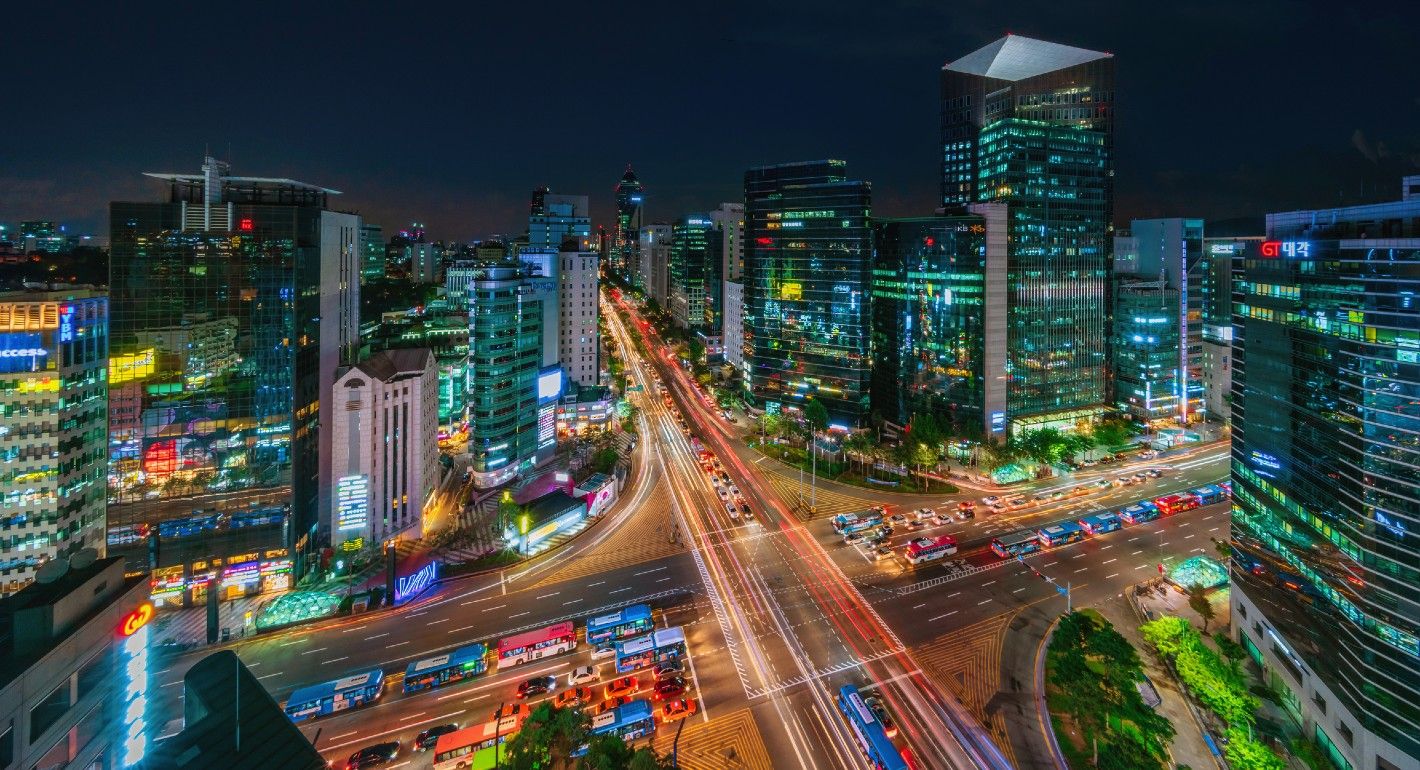Report on Labor and Immigration Incident at Georgia Battery Plant Facility
1.0 Executive Summary
This report details the arrest, detention, and subsequent repatriation of approximately 300 South Korean nationals from a joint venture battery plant construction site in Georgia, USA. The incident highlights critical challenges at the intersection of global industrial projects, labor migration, and the fulfillment of the United Nations Sustainable Development Goals (SDGs), particularly SDG 8 (Decent Work and Economic Growth), SDG 10 (Reduced Inequalities), and SDG 16 (Peace, Justice, and Strong Institutions).
2.0 Incident Details
A raid was conducted by U.S. Immigration and Customs Enforcement (ICE) on September 4th at the Hyundai Motor Group-LG Energy Solution battery joint venture (HL-GA Battery Company) construction site.
- Total Arrested: 475 individuals were arrested during the operation.
- South Korean Nationals: Approximately 300 of those arrested were South Korean employees.
- Stated Reason for Arrest: Possession of visas that were allegedly inconsistent with the purpose of their stay and work activities.
- Detention Facility: The workers were held at the ICE detention facility in Folkston, Georgia, for six days.
3.0 Repatriation and Corporate Response
A repatriation process was organized following the detention, involving corporate and diplomatic efforts.
- Chartered Flight: A chartered flight was arranged to transport the detained workers from Hartsfield-Jackson Atlanta International Airport back to South Korea.
- Corporate Responsibility: LG Energy Solution assumed the financial cost of the chartered flight, estimated at approximately 1 billion KRW. This action reflects a corporate response to a crisis involving its workforce, a key component of sustainable business practices under SDG 8.
- Diplomatic Involvement: The Washington Consul General, Cho Ki-joong, confirmed that consular services were engaged to facilitate a swift and orderly return for the nationals, aligning with the principles of SDG 16 to ensure access to justice and protection for all citizens.
4.0 Analysis from a Sustainable Development Goals (SDG) Perspective
The incident provides a critical case study on the complexities of achieving the 2030 Agenda for Sustainable Development, particularly when environmental and economic goals intersect with social and legal responsibilities.
4.1 SDG 8: Decent Work and Economic Growth
The construction of the battery plant supports economic growth and innovation in the clean energy sector. However, the visa-related detentions raise significant concerns regarding the “Decent Work” aspect of SDG 8.
- Labor Rights and Protection: The situation underscores the vulnerability of migrant workers and the imperative for corporations to ensure full compliance with labor and immigration laws in host countries.
- Ethical Supply Chains: Achieving SDG 8 requires that economic development projects uphold the rights and legal status of all workers, ensuring safe and secure working environments.
4.2 SDG 10: Reduced Inequalities & SDG 16: Peace, Justice, and Strong Institutions
This event highlights the importance of robust legal frameworks and equitable treatment for migrant populations.
- Access to Justice: The enforcement action by ICE and the subsequent detention process fall under the purview of SDG 16, which calls for the rule of law and non-discriminatory legal systems. The swift consular response was vital in upholding the rights of the detained nationals.
- Migrant Worker Status: The incident touches upon SDG 10 by bringing to light the precarious position migrant workers can face, emphasizing the need for fair and well-managed migration policies.
4.3 The Nexus of Environmental and Social Sustainability
While the battery plant project is fundamentally aligned with advancing SDG 7 (Affordable and Clean Energy) and SDG 13 (Climate Action), this incident demonstrates that environmental sustainability cannot be decoupled from social sustainability. A holistic approach to the SDGs requires that progress in green technology and infrastructure (SDG 9) is built upon a foundation of ethical labor practices, human rights, and the rule of law.
Analysis of Sustainable Development Goals (SDGs) in the Article
1. Which SDGs are addressed or connected to the issues highlighted in the article?
The article highlights issues related to labor rights, migration, and legal processes, which directly connect to the following Sustainable Development Goals:
- SDG 8: Decent Work and Economic Growth – The core issue involves workers at a construction site for a major industrial project. Their arrest and detention bring into focus the conditions of their employment, particularly their vulnerability as migrant workers.
- SDG 10: Reduced Inequalities – The situation involves migrant workers facing legal challenges in a foreign country. This relates to the SDG’s aim to facilitate safe, orderly, and regular migration and protect the rights of migrants.
- SDG 16: Peace, Justice and Strong Institutions – The involvement of law enforcement (U.S. Immigration and Customs Enforcement – ICE) and diplomatic bodies (South Korean Consulate) points to the role of state institutions in managing migration, law, and justice.
2. What specific targets under those SDGs can be identified based on the article’s content?
Based on the events described, the following specific targets are relevant:
-
Target 8.8: Protect labour rights and promote safe and secure working environments for all workers, including migrant workers.
- The article details the arrest of approximately 300 Korean migrant workers at their workplace. The reason cited is possessing “visas that did not match the purpose of their stay,” which points to a precarious employment situation where their legal status and labor rights were not adequately protected, leading to their detention and deportation. This represents a failure to ensure a secure working environment for these migrant workers.
-
Target 10.7: Facilitate orderly, safe, regular and responsible migration and mobility of people.
- The mass arrest during a “불법 이민 단속” (illegal immigration enforcement) raid demonstrates a breakdown in orderly and regular migration processes. The workers’ visa issues suggest that the channels for their employment did not align with legal requirements, resulting in a situation that was unsafe and irregular, culminating in their detention by immigration authorities.
-
Target 16.3: Promote the rule of law at the national and international levels and ensure equal access to justice for all.
- The article describes the actions of a state institution, the U.S. Immigration and Customs Enforcement (ICE), in detaining foreign nationals. The subsequent involvement of the South Korean Consul General to arrange for their “신속히… 귀국” (swift return to Korea) highlights the legal and diplomatic processes involved. The situation raises questions about the workers’ access to due process and justice within the U.S. legal system following their arrest.
3. Are there any indicators mentioned or implied in the article that can be used to measure progress towards the identified targets?
While the article does not cite official SDG indicators, it provides concrete data that can serve as implied indicators to measure the challenges related to the identified targets:
-
Indicator for Target 8.8: The number of migrant workers detained or deported due to labor or visa irregularities.
- The article explicitly states that “300여 명은 한국인 직원” (about 300 were Korean employees) were arrested and detained. This figure serves as a direct measure of the scale of the failure to protect these workers’ rights and provide a secure working environment.
-
Indicator for Target 10.7: The number of migrants detained as a result of irregular migration status.
- The article reports that U.S. immigration authorities “475명을 체포했다” (arrested 475 people) in a single raid, of whom about 300 were Korean. This number is a clear indicator of a significant failure in facilitating “orderly, safe, regular and responsible migration.”
-
Indicator for Target 16.3: The number of foreign nationals detained by immigration authorities.
- The detention of 300 Korean nationals by ICE is a quantifiable event that reflects the application of national laws and institutional power. This number can be used as an indicator to assess the interaction between migrants and the justice and law enforcement systems of a host country.
4. Summary Table of SDGs, Targets, and Indicators
| SDGs | Targets | Indicators (Implied from the article) |
|---|---|---|
| SDG 8: Decent Work and Economic Growth | 8.8: Protect labour rights and promote safe and secure working environments for all workers, including migrant workers. | The number of migrant workers arrested and detained due to visa irregularities at their workplace (approx. 300 Korean workers). |
| SDG 10: Reduced Inequalities | 10.7: Facilitate orderly, safe, regular and responsible migration and mobility of people. | The number of individuals arrested in an immigration enforcement raid at a single worksite (475 people, including 300 Koreans). |
| SDG 16: Peace, Justice and Strong Institutions | 16.3: Promote the rule of law at the national and international levels and ensure equal access to justice for all. | The number of foreign nationals detained by immigration authorities (300 Korean citizens held in an ICE detention facility). |
Source: v.daum.net







